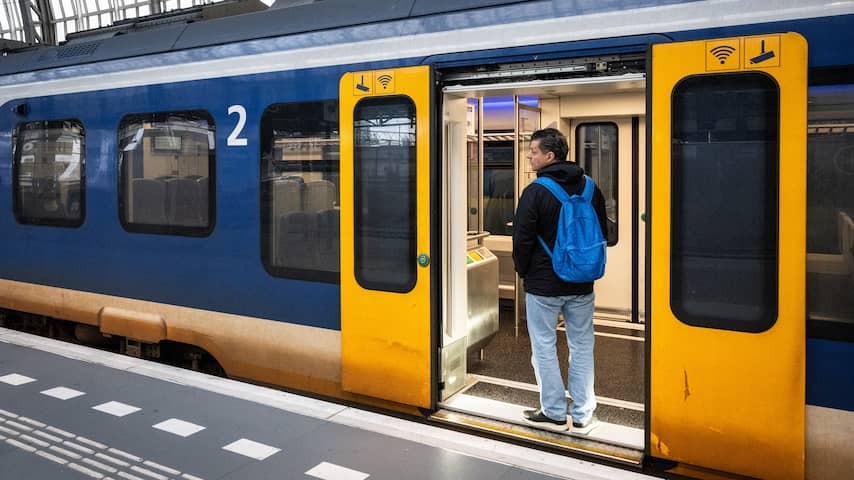
The NS (Dutch Railways) has again suffered a loss of tens of millions in the past six months. The number of travelers did increase, but it is still less than hoped. This, combined with high inflation, has led to a loss.
In the first half of the year, the NS had an operational loss of 60 million euros, a slight improvement compared to the same period last year when the loss was 65 million euros. “Still clearly insufficient for a financially healthy NS,” the railway company writes in the report that was released on Tuesday evening.
The loss does not come as a surprise, says spokesman Oscar van Elferen to NU.nl. “Since the corona period, the number of travelers has collapsed.” In the past six months, the railway company sold more tickets through discount tickets and campaigns, but it is not yet at the same level as before the pandemic.
“And that is unlikely to happen again, as many people regularly work from home.” In the past six months, the company transported 93 percent of the number of travelers from 2019. On average, only 30 percent of the seats on the train are occupied.
Furthermore, the railway company is suffering from cuts in public transport and lower government contributions for student public transport cards. On an annual basis, this amounts to approximately 97 million euros.
More expensive train tickets and smaller chance of a seat
Another important cause of the loss is the “inflation gap,” says Elferen. “Inflation has also made everything more expensive for the NS, but we have not always passed this on in the price of train tickets.” The difference between actual inflation and the passed-on inflation is 11 percent.
“So we need to do something about the cost side to ensure that we don’t have to pass the costs on to travelers. Unfortunately, that is not always feasible.” Earlier this month, outgoing State Secretary Thierry Aartsen (Public Transport) announced that train tickets will be 6 to 9 percent more expensive next year.
Travelers may also suffer from the loss in other ways. For example, less equipment will be used next year, making the chance of getting a seat smaller. Especially during rush hour on busy Tuesdays and Thursdays, it will be more difficult to find a seat. Furthermore, disruptive work remains the order of the day.
From 2028, the railway company wants structural costs to be reduced by 200 million euros, approximately 5 percent of total costs. The company wants to achieve this by, among other things, shrinking the head office and saving on hiring, IT and housing costs. It is expected that 50 million euros in structural annual savings will be implemented by the end of this year.
Wage increase and expansion of heavy work scheme
In the half-year figures, the NS has taken into account a wage increase that may have to be paid retroactively. The exact wage increase still has to be determined in the collective labor agreement (CAO), so the effect on the costs of the railway company is not yet entirely clear.
It is also possible that the collective labor agreement will include that more staff can retire early by expanding the heavy work scheme. For this, the NS would have to release another 200 million euros.